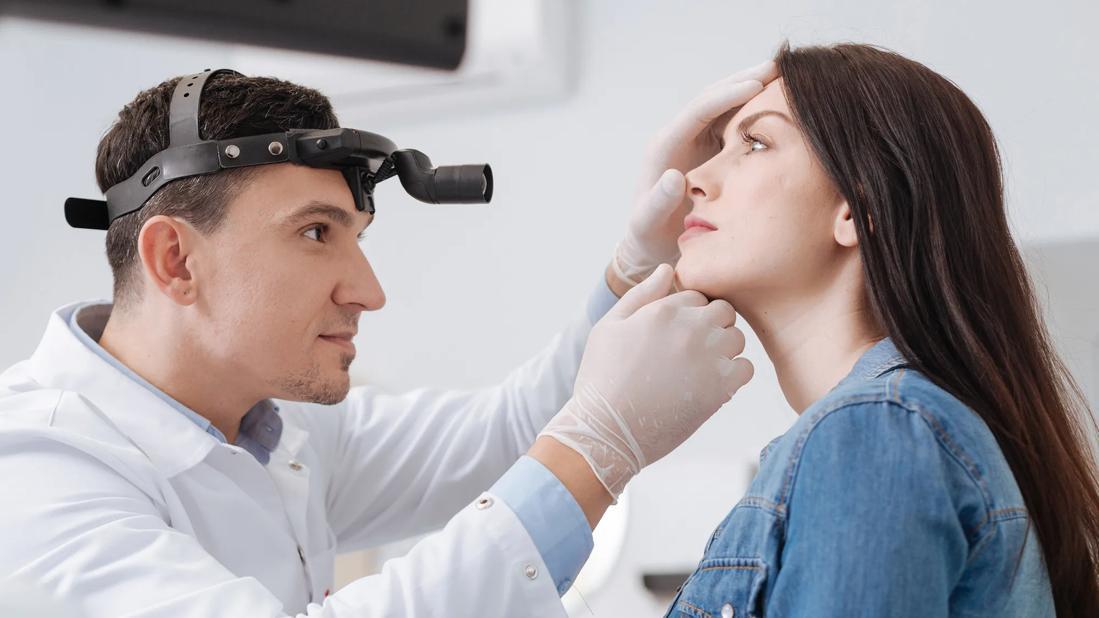Can Nasal Polyps Be Cancerous?
These growths inside the nose don’t cause cancer, but it’s important to make sure you get a proper diagnosis

You’ve been diagnosed with nasal polyps. Now what? Do you need to worry about the possibility that they could turn into cancer?
Otolaryngologist Troy Woodard, MD, explains what you need to know.
Do nasal polyps turn into cancer?
Nasal polyps are small growths in the nose that are caused by chronic inflammation. They’re benign tumors, which means they don’t turn into cancer.
Understandably, though, the word “tumor” can cause some confusion and concern. Many of us associate that word with cancer. But medically, a tumor is any solid mass of tissue that forms when abnormal cells group together. And many types of tumors, like nasal polyps, aren’t cancerous.
Nasal polyps are common. Cancerous nasal tumors, on the other hand, are fairly rare. The American Cancer Society reports that cancers of the nasal cavity and paranasal sinuses make up less than 1% of all cancers in the U.S.
“The vast majority of growths in the nose are benign polyps,” Dr. Woodard confirms. "Only a very small portion is cancerous.”
Here’s the thing: There’s no way to tell what you’re dealing with on your own. Plus, nasal polyps typically start growing high up in the nasal cavity, where they can’t be seen by the naked eye. That means that only a healthcare provider can definitively tell you what you’re dealing with.
In short, if you’ve been diagnosed with nasal polyps, you don’t need to worry about them turning into cancer. But if you’re experiencing nasal symptoms and haven’t yet seen a provider, it’s important to do so.
What can be confused for nasal polyps?
If you feel some sort of growth in your nasal passage, don’t jump to conclusions. Nasal polyps and cancerous tumors aren’t the only two possibilities. You could also be feeling:
- Another type of growth, like a wart
- A skin issue, like a pimple or an ingrown nose hair
- A structural issue, like a deviated septum
- Issues related to an infection, like nasal vestibulitis
“It could be a lot of different things,” Dr. Woodard points out. “So, if you don’t yet have a diagnosis, you really need to be checked out by a healthcare provider who can take a look and determine what’s causing the problem.”
When should I be worried about nasal polyps?
Nasal polyps aren’t cancerous. But they can still affect your quality of life, especially if your symptoms don’t improve or get worse.
Talk to a healthcare provider if your nasal polyps are causing symptoms like:
- Persistent nasal congestion and a runny nose
- Changes in your sense of smell
- Chronic sinus infections
They can help you figure out how to best manage your nasal polyps, like with medication or surgery.
Other symptoms, like facial pain and frequent nosebleeds, aren’t symptoms of nasal polyps. But they can be signs of other issues in your nasal passages — so don’t ignore them. Make an appointment with a primary care provider or an otolaryngologist (also called an ENT).
“Many nasal problems can cause the same symptoms,” Dr. Woodard says, “so you’ll need to see a doctor who can use an endoscope — a small telescope in the nose — to figure out what’s actually causing your symptoms.”